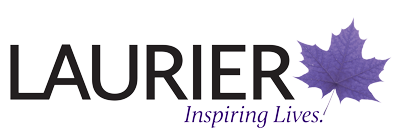Step 1: Understand the Assignment
To successfully complete your academic assignment, pay close attention when your instructor explains the assignment requirements and expectations, and clearly understand clearly what is being asked of you. The grade you receive on a paper is based on how well you have followed the assignment requirements, rather than solely being based on a well-written or well-argued paper.
Determine What the Assignment Requires You to Do
Read the Assignment Over as Soon as You Get It
Carefully consider what is being asked of you, keeping in mind that instructions:
- May be verbal (in class or tutorial) or written.
- Include specific requirements such as the question to be answered or issue addressed (e.g. content concerns).
- Include general requirements such as document format and number of pages (e.g. style/form concerns).
Consider what requirements your instructor has specified and what information is left out. Conclude what you should know or find out about the assignment from the instructions.
Identify the Assignment Type
Carefully re-read the assignment sheet as there are many types of academic assignments, which demand different requirements. Your response, whether in a book review, lab report, or compare and contrast essay, must meet the conventions and requirements specific to its type. Visit "Specific Types of Writing" (University of Toronto) for a breakdown of assignment types.
Consider Key Words
Pay attention to the specific form of questions asked (why, how, what, etc.) and to key instruction verbs such as analyze, evaluate, or discuss. Understand that these terms mean different things.
To learn more about identifying key terms, check out the following resources:
- Terms Frequently Used in Writing Assignments (Queen’s University)
- Answering Assignment Questions (University of New South Wales, Sydney Australia)
Get Help Along the Way
Consult your instructor if you have questions about your assignment.
- Schedule a meeting: Before you meet, write down three or four specific questions you have regarding the assignment to organize your thoughts and direct your discussion.
- Take notes during the meeting so you can recall what was discussed.
Laurier's Writing Centre tutors can help you interpret the assignment and make sure your response meets the requirements. Consult the Writing Centre website to book an appointment.
Double-Check
As you work on your paper, and especially before you hand it in, refer back to the assignment sheet several times to make sure you are addressing the requirements as completely as possible and aren't "drifting" away from the main goal of the assignment.
Requirements: Beyond the Basics
What If the Assignment Lists a Series of Questions?
Many assignments will list a series of questions for you to consider regarding the topic. Most often these are suggestions for generating ideas rather than rigid requirements needing response (the instructor's wording should make this clear; otherwise, you should ask for clarification).
- You should not respond to these questions one-by-one as if they are short-answer questions.
- Find a focus and an argument for your paper, speaking to as many questions as possible.
- Respond elegantly or organically to these questions by having an argument that makes addressing them inevitable.
The strongest papers will respond to assignments with multiple questions by showing how answers to the questions are related.
Do You Need a Thesis?
The short answer is yes, usually. Do not assume that an assignment does not require a thesis just because the assignment sheet does not mention one explicitly.
A thesis:
- Is the main point or focus of your written text; your controlling idea.
- Gives shape to your writing and helps you organize your thoughts.
- Helps you prioritize information and eliminate what is extraneous.
- Guides you and makes your writing easier even if you do not need to include an explicit thesis in your response.
When an explicit, argumentative thesis statement is not required:
- It is still useful to have a central point or focus to help organize your ideas.
- Having a main idea or argument ensures you produce a sustained, coherent response rather than unrelated responses (e.g. response papers).
Once you feel that you have a firm understanding of the assignment question, move on to Step 2, where you will select a topic and draft a research question.

